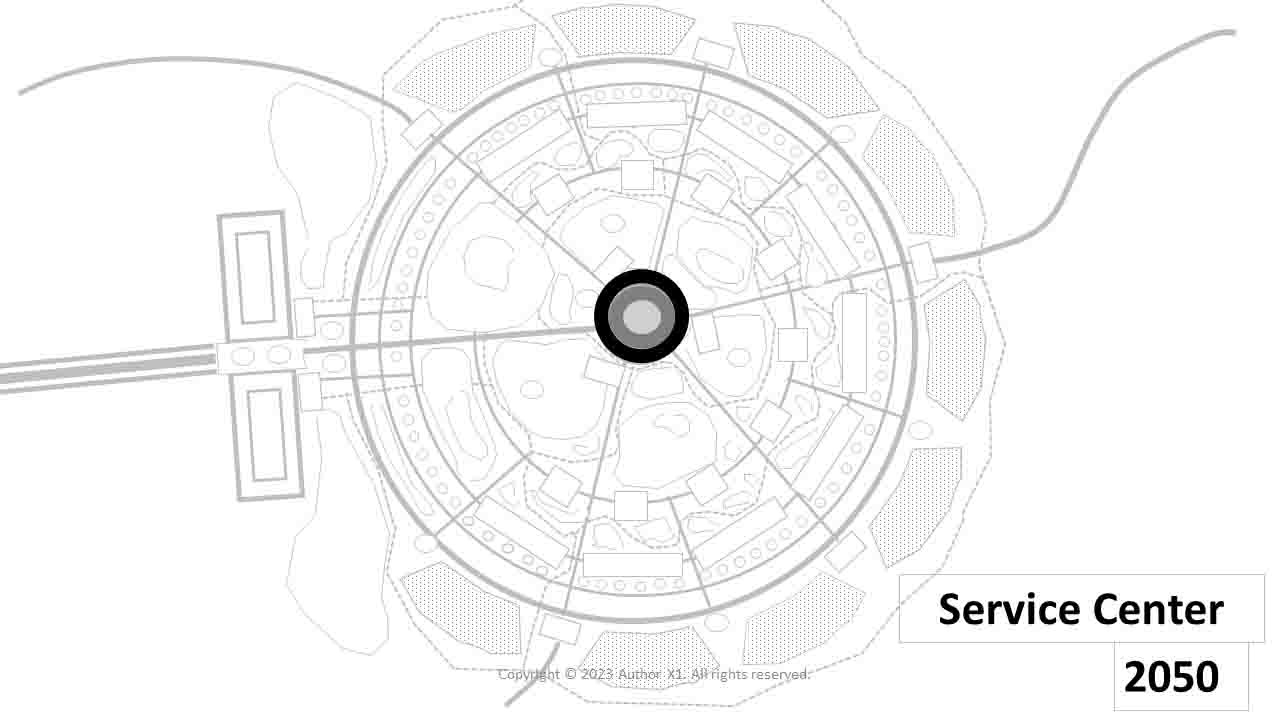
The service center is where the
aureole's server core is located. The core of
a single aureole node is integrated with other
server cores in other nodes across the system, and
with public networks as well. The serever core hosts the
"sim", the "primary utility liason", and the "scheduler".
The "sim" is the engine that creates the virtual worlds, in which
the aureole residents live,
work, and
play. In other words, it creates the theatrical
stage (and all necessary props) upon which aureole residents
perform their virtual lives. The sim's "level zero"
functions are hardwired and cannot be overruled.
These level zero functions manage the aureole
systems immutable Standard Operating Procedures, or
SOPs, which documnt the foundation rule set for life
in virtual space.
The "primary utility liaison" is an interactive
entity. It is
effectively the god (or godess) of the aureole system,
subject only to the sim's level zero SOPs. The
primary utility liaison communicates with each
aureole resident through the hardware that is embedded
in each resident's head, and it presents itself to
each resident as a humanoid entity, via telepathic
voice. The primary utilitiy liaison monitors and manages the
status of every infrastructure layer (buildings, roads,
landscaping, food production, etc...) within a given aureole
node, as well as the physical well-being of each
aureole resident. The primary utility liaison
delegates tasks to any of a number of supordinate
subsystems, as necessary.
The
"scheduler" is
subordinate to the primary utility liaison, and
there is one scheduler for each aureole node. A
scheduler controls and choreographs the many robotic
systems (real-world units) to service the needs of a
given aureole node. The scheduler also handles the
tracking and choreography of aureole residents, to
maintain organic human bodies in their booths, and
to minimize human-to-human interaction in organic
space.
Other functions performed
at the service center, which are handled by
individual robotic systems (subject to guidance from
the scheduler and the primary utility liaison),
including local shipping/receiving, food processing,
waste recycling, dishwashing and laundry services,
medical services, robotic system repairs, and just about every
other task needed to serve the daily needs of
resident citizens and handle the normal,
steady-state operation of the aureole node.